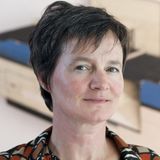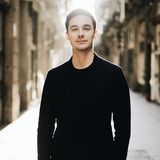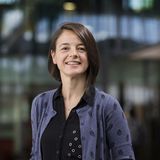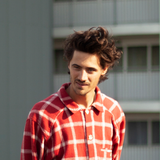When it comes to urban public spaces, the idea is that everyone can use them. But is this actually the case — are they really public? Public spaces can be defined as places where people individually or together enjoy spending time outdoors. They can vary from stairs in front of a building, where people can sit freely, to large plazas in city centres. There is a strong relationship between the presence of the different groups in public spaces and the characteristics of the built environment. In this special of Designing Cities For All, we aim to understand who the public spaces serve and what characteristics make some public spaces highly welcoming and some not at all. We will talk with designers, researchers, practitioners, and policymakers to take a deep dive into these topics.
This programme will be subtitled live! To follow with live subtitles, click this link.




Floor van Ditzhuyzen (Rotterdam) is an architect, curator, and researcher. She is also known as the public space detective, an ongoing research project investigating common and uncommon phenomena in public spaces, and one of the founding partners of the international ‘We Love Public Space’ Festival. This annual event started in 2017 and is dedicated to addressing urgent topics in public spaces, in both an inspiring way and setting. The aim of the Festival is to conduct an open conversation about how city makers deal with developments that determine the design and use of public space, now and in the future. A dynamic platform for the exchange of insights and experiences of everyone who cares about public space; from planner to artist, from designer to an urban ecologist. As a part of this festival, Floor is curating a series of Walkshops in which Rotterdam-based professionals share their fascination for public space and invite the participants to engage actively with, and reflect on the contemporary city and its public spaces.
Özlemnur Ataol (Eindhoven) is an architect and urban researcher specializing in participatory urban research. Her research focuses on the interface between urban and social geography, where her scholarship analyses how cities can benefit from participatory approaches for better inclusive and just development & management. Her experience includes collaborations with locals as well as with public and private institutions, such as local governments, NGOs, and foundations within the fields of evidence-driven policymaking and participatory urban planning & management with underrepresented groups, such as children and women. Ataol advocates for children’s right to participate in every matter children think matters, including their cities, and believes in inclusive development for urban environments. She is currently a Ph.D. researcher at the Eindhoven University of Technology, where she focusses her research on the role of participatory urban planning in creating cities for children.
Maurik Stomps (Rotterdam) is an artist and designer. His work often takes place in the public domain. Who owns the city, and to what extent can you add something to it as an individual? With this as the central issue, he leaves objects behind in the city and tries to subtly disrupt the daily routine. With his work, Maurik states that general aesthetics are subordinate to social impact. In the project ‘Bend the Rules, Stretch the Norm’ Maurik Stomps researched the friction between the law and individual freedom in public space by performing a set of street interventions. With these interventions, he stretches the norm of public space playfully, searching for free zones and possibilities the municipality has not foreseen just yet. Maurik studied graphic design and finished his master’s in Contextual Design at the Design Academy Eindhoven.
Jorn Wemmenhove (Rotterdam) is an urban change maker passionate about creating cities that are human and kind to ourselves, others and our planet. He co-founded Humankind; the agency for urban change, helping cities, companies & NGO’s to accelerate urban change through creative strategies & activations. Projects connect public space and mobility creating active and inclusive cities. Working with a holistic approach with a multidisciplinary team of urban planners, creatives, transition theorists, communication specialists, social entrepreneurs, psychoanalysts, etc. he turns visions into actions. At the age of 20, he co-founded non-profit El Desafío Foundationpromoting youth development and local democracy in Rosario, Argentina. Jorn is on a mission to create human & kind cities for all.


Architecture and design studio T Sakhi has transformed security barriers into seating as part of a series of urban interventions aimed at creating social places for locals in Beirut.
The multidisciplinary studio wanted to introduce changes to Beirut's urban topography that make its public spaces more engaging.

Across the spectrum, in large cities and small towns, outdoor public spaces must be a central part of the path forward. People need a way to go back to work, and the world wants to get out of the house. Constituents are desperate to hear new messages from political leaders, not just about whether or not to return to public life, but about how.

The play street is a freely accessible space attracting residents as well as passers-by of all ages to pause, sit, meet and play. From my experience as a visitor, it works well as a playable space encouraging both children and adults to use it.






